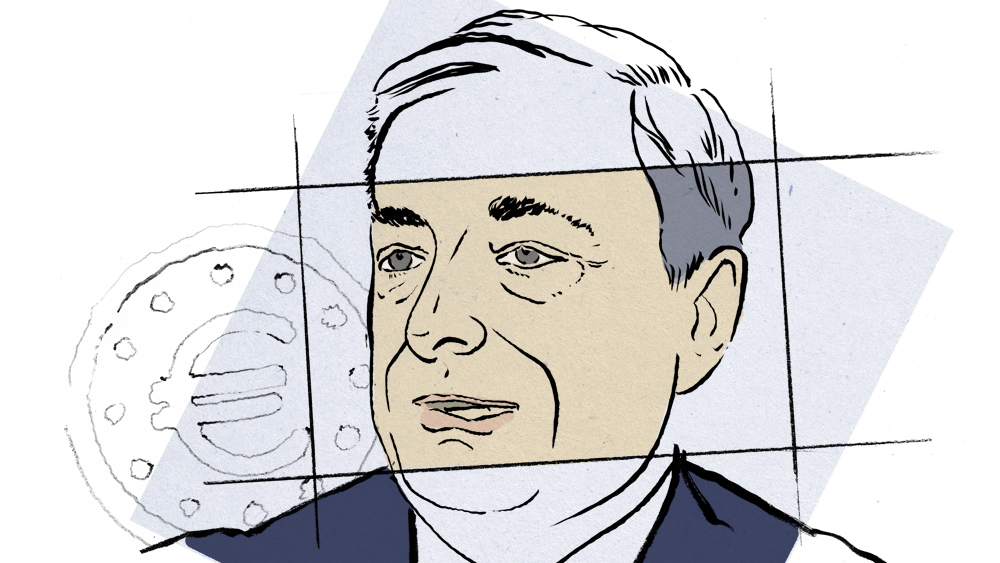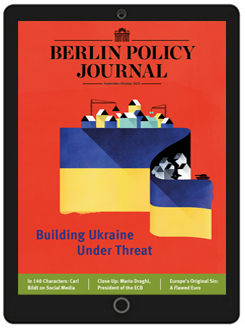The president of the European Central Bank has a tough balancing act to pull off – do too little and the common currency will fall apart; too much, and European policy-makers won’t take steps necessary to strengthen it.
Lancaster House, a stately mansion built almost two centuries ago for Britain’s Hanoverian royal family, was once a glittering venue for society balls. Today the building is used for official seminars and receptions when the British establishment wants to make a good impression, particularly on influential foreigners. On the eve of the opening of the London Olympic Games, this was the venue for a government conference promoting British manufacturing and services.Yet on a sunny morning in late July 2012, its chandeliered splendor was not the backdrop to a speech supporting British business. Instead, Mario Draghi, president of the European Central Bank, came to shore up the euro. In dramatic, even brilliant, style, he succeeded. The steps he outlined, however, and the many repercussions of the actions that they called for, opened up a string of questions about the role of the ECB in helping to complete what is still only the half-finished construction of economic and monetary union in Europe.
Draghi, a former senior official at the Italian Treasury and head of the nation’s central bank, the Banca d’Italia, took over from French monetary technocrat Jean-Claude Trichet in November 2011. He immediately stamped his mark on the central bank with his own combination of pragmatism, determination, and dry humor. The ECB boss is less ceremonial and more precise than Trichet, more attuned to the financial markets, and has strong links to the United States (he studied at the prestigious Massachusetts Institute of Technology and worked for a while as managing director at Goldman Sachs). Draghi combines a wry turn of phrase and a penchant for intrigue (which some say stems from his Jesuit upbringing) with an impressive set of responsibilities, some of which are mutually contradictory. Several of these characteristics were on show in his London address.
Draghi opened his short speech with a joke, comparing the euro to a bumblebee. “This is a mystery of nature because it shouldn’t fly but instead it does.” But he had a serious message: At the height of international capital market gloom concerning the fate of the single currency, speculators had been selling the euro and dumping bonds from countries like Italy and Spain. The central bank president thought anti-euro action had gone too far, and said so: “Within our mandate, the ECB is ready to do whatever it takes to preserve the euro. And believe me, it will be enough.” His words echoed around the world, propelling sharply higher bond prices for the countries that had previously been under attack and winning some essential breathing space for the single currency.
…
Read the complete article in the Berlin Policy Journal App – September/October 2015 issue.








